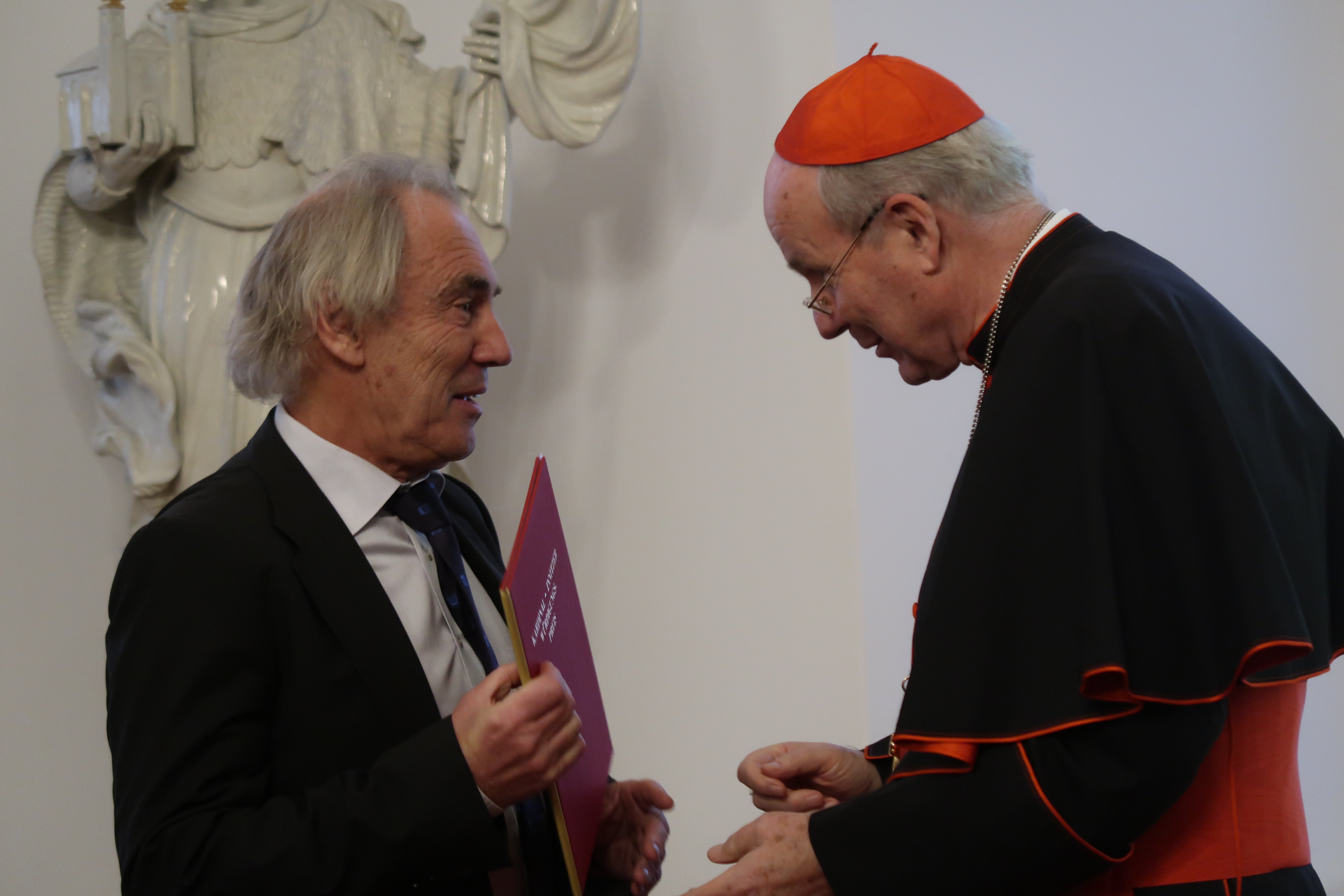
(Vienna, 21 November 2022) Erwin F. Wagner, a biochemist and genetic researcher at MedUni Vienna's Department of Dermatology and Department of Laboratory Medicine, has been awarded the Cardinal Innitzer Prize in the natural science category by the Archdiocese of Vienna.
Erwin F. Wagner it is one of the leading biochemists and genetic researchers in the field of cancer biology and tumour development. His studies focus on the area of gene function in healthy and pathological states. He is researching the functions of transcription factor complexes that regulate cell proliferation, cell differentiation and oncogenesis, as well as the crosstalk between organs, both in mice and in humans. He is working to define and understand the molecular mechanisms that lead to disease and carcinogenesis, and to identify new therapeutic targets for treating human diseases.
The science prize, named after the Viennese Archbishop Cardinal Theodor Innitzer (1875-1955), has been awarded by the Archdiocese of Vienna since 1962 and is backed by the Ministry of Science, several Austrian states, and also by banks, insurance companies and the Chamber of Commerce. In addition to the Grand Lifetime Achievement Award, honorary prizes are awarded in the categories of humanities, natural sciences and journalism, as well as funding awards for young Austrian scientists.
About Erwin Wagner
Erwin Friedrich Wagner studied technical chemistry at the University of Graz, graduating in 1974 with a degree in engineering. In 1975, he worked on lipid chemistry in the laboratory of Fritz Paltauf.
He did his PhD at the Max Planck Institute for Molecular Genetics in Berlin and in the laboratory of Manfred Schweiger at the University of Innsbruck. As a postdoctoral student, he worked at the Fox Chase Cancer Center in Philadelphia, USA, as a Max Kade Fellow in the laboratory of Beatrice Mintz. Wagner's work focused on the genetic regulation of murine development, and he developed techniques such as microinjection of DNA into fertilised eggs and techniques for gene transfer into stem cells and mice (transgenic mouse models). In 1983, Wagner received his postdoctoral qualification at the University of Innsbruck and became group leader at the European Molecular Biology Laboratory (EMBL) in Heidelberg. In 1995, he was appointed Associate Professor at the Faculty of Natural Sciences of the University of Vienna. In 1988, he was appointed Senior Scientist at the then newly founded Research Institute of Molecular Pathology (IMP) in Vienna. Wagner was a founding member of the IMP and served as its Deputy Director from 1997 until 2008. Wagner left the IMP in 2008 to become deputy director and head of the Cancer Cell Biology Programme at the Spanish National Cancer Research Center (CNIO) in Madrid. Wagner left the CNIO in 2018 and, in January 2019, returned to Vienna where he is currently working as a group leader at the Department of Dermatology and the Department of Laboratory Medicine of the Medical University of Vienna.